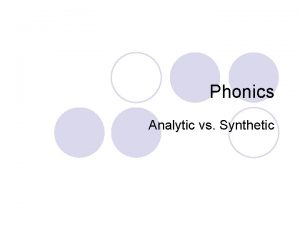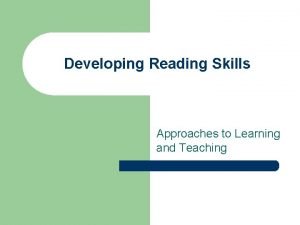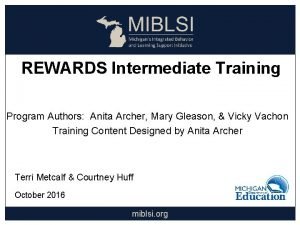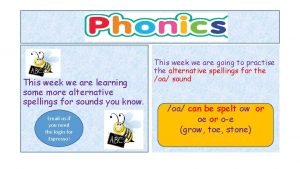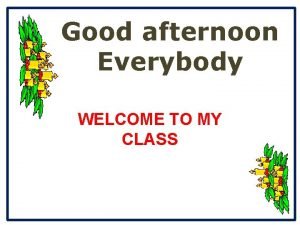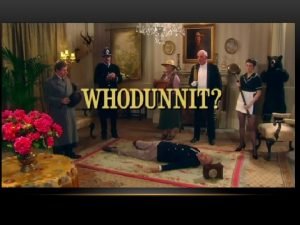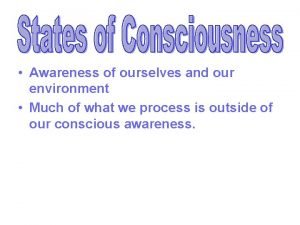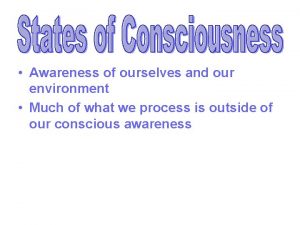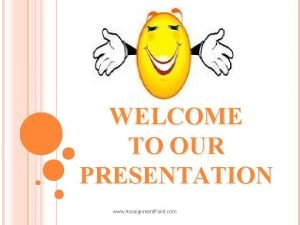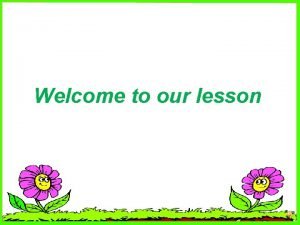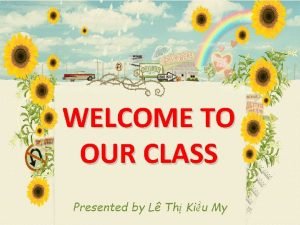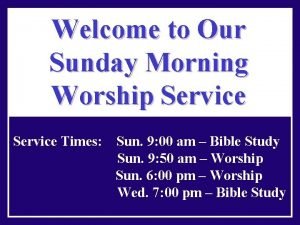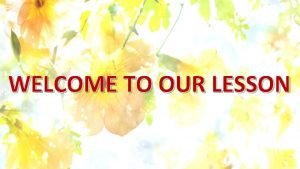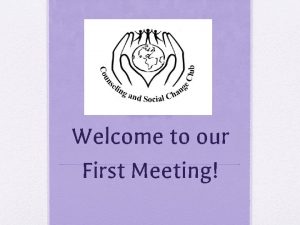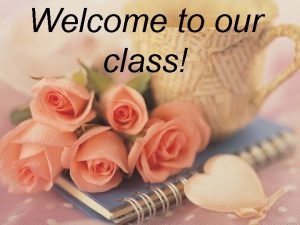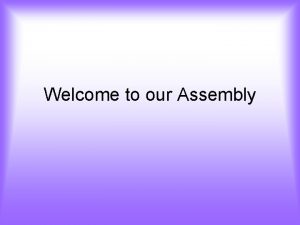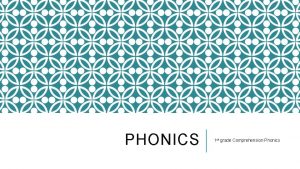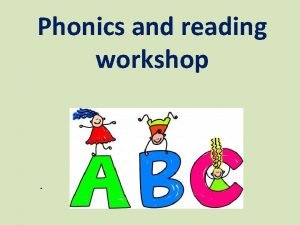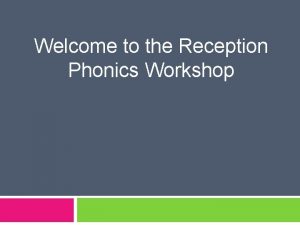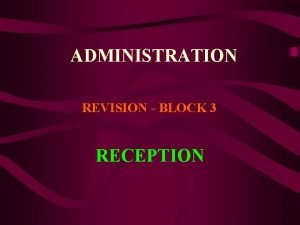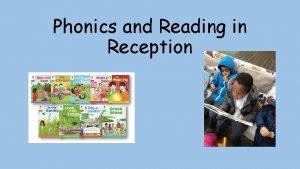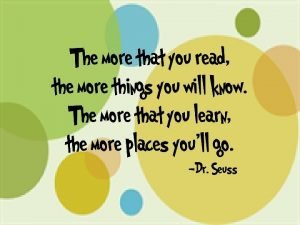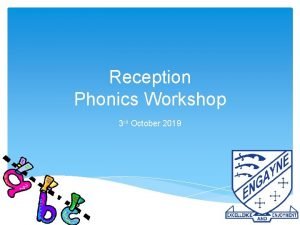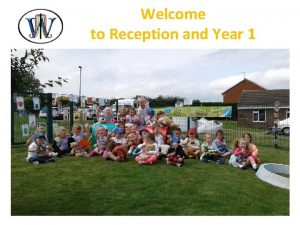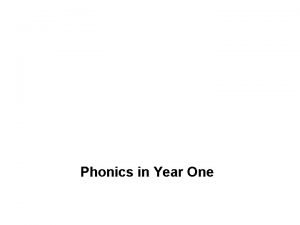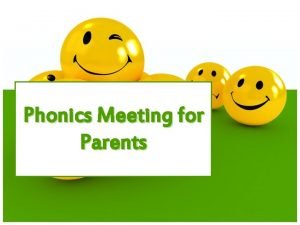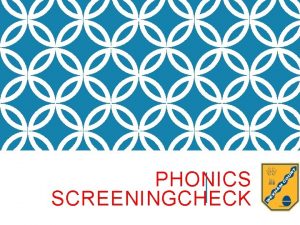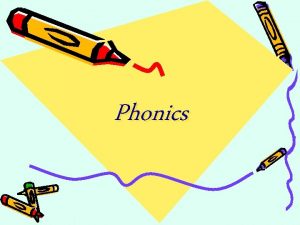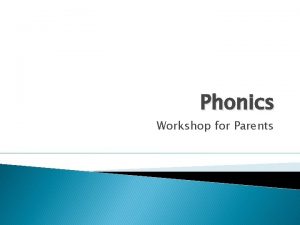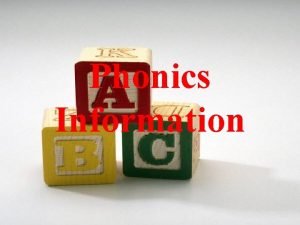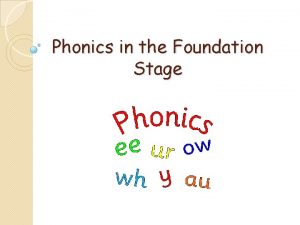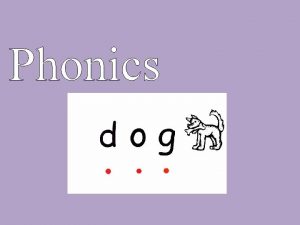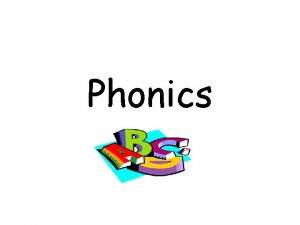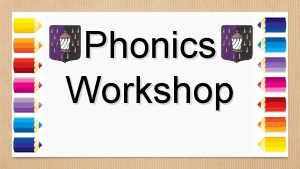Reading and Phonics in Reception Welcome to our

























- Slides: 25

Reading and Phonics in Reception Welcome to our meeting and thank you for coming.

We aim to cover: • The “reading with your child” experience • Library book routine • Whole word and Decodable reading books • What we expect from you!!

Reading with your children • Sharing a book with a child is fun. • It’s a time for closeness, laughing and talking together. • Try to find a quiet spot where you can both relax and enjoy yourselves. • Make sure you are both not too tired to enjoy the experience.

Library books • Your children will have the opportunity to select a library book from our library area once a week. Let a member of the FS team know if you wish to borrow more. • They are encouraged to look carefully at the book to make sure they are going to enjoy it before making their final selection.

Library book experience at home • • Library books are for you to read to your children – they are not expected to read them to you. Turn off the TV/ Cuddle up after school with a cup of tea/Snuggle up at bedtime to share the book. Make it a real quality time for you and your child. Don’t forget you can borrow books from the library in the town centre. Bedtime stories are a wonderful experience for both you and your children. Make time for a regular bedtime routine – bath, cuddles, snuggling and a story. It will help them settle and drop off to sleep. According to NHS choices, the average 4 -5 year old needs 11 to 11 and a half hours sleep every night. Does your child get that much?

Questions What do you think the book is about? Who is the main character? Where is the story set? What do you think is going to happen next? • Why do you think. . . did. . . ? • What was your favourite part of the book? • •

Learning to Read As parents or carers you are your child’s first teacher with an incredibly important role to play in helping your child to read and become a life long lover of books and reading.

Phonics • Phonics is the primary method of teaching children to read independently. • We have started to introduce your children to the first phonemes (sounds) in our phonics sessions. • The first sounds we are learning are: s, a, t, p, i, n, m, d, g, o, c and k • We teach the name of the letter alongside the sound that it makes. Eg “This letter is called ‘ess’ and is makes the sound ‘sss’. • There is no ‘er/uh’ at the end of each sound/phoneme. http: //www. youtube. com/watch? v=Bqh. XUW_v-1 s

Phonemes • We only introduce new phonemes when the children are secure with the ones already taught. • Can you help your child learn the action for the phoneme? • Can you help your child form the letter correctly? • Can your child think of any more words beginning with the same sound? Write them on the sheet if they can.

Whole Word Books • The aim of these books is for you to read the phrase or sentence to your child, pointing at each word as you read it. • Usually one or two words change on subsequent pages. • Your child can then try to read the sentence themselves using the picture to scaffold. • They will develop the concept of a word and will begin to recognise whole words in the text.

Decodable books • Children will be given a decodable reading book when we feel they are ready to engage – we do not want any child to feel they are failing. • The first books your children will bring home are closely linked to the phonic stage we are working on in the classroom. • The books contain words which children can sound out and some decodable and tricky high frequency words. • We do expect you to read at home with your child at least 5 times a week.

Decodable books. . . • Your child may bring home the same book more than once, especially if they are reading at home every night. • This might happen because we feel your child needs to consolidate and gain fluency when reading. • It might also be because they have reached the end of a set and moving them on would mean issuing books that contain phonemes we have not covered in school.

Blending sounds to read words • Blending is where you sound out the individual phonemes in a word and blend them together to read the word. • Initially your child will find this difficult – you might have to do this for them but in such a way that they think they have read the word. You will see a demonstration of this a bit later.

Segmenting words for spelling and writing • To help children spell words they must first listen to the sounds they hear in a word and then segment the word – e. g. c-a-t. • We use sound buttons to help children with this segmenting process • c-a-t has 3 sounds • sh-o-p also has 3 sounds • r-ai-n also has 3 sounds

Segmenting words for spelling. . . • c-a-t contains single letter sounds, each letter has one sound. • sh-o-p and r-ai-n contain digraphs – two letters that make one sound (Some of the children are already learning some of these). • Games such as ‘I spy. . . ’ and tapping out the sounds in a word can help children learn to segment.

High frequency Words • High frequency words are words which appear most frequently in written text. • Some are decodable – e. g. Children are able to sound them out depending on the phonic stage they are working at. • Some are tricky words – words which cannot be sounded out or do not follow the usual spelling rules, e. g. the, said, have. . .

Reading and Writing across the curriculum • Learning to read and write does not start and end with phonics, literacy, reading scheme books and guided reading. • Every opportunity is taken to help children see the links between what they learn about reading and writing and other areas of the curriculum. • Fine motor skills activities, early morning work, oral story telling, speaking and listening activities and answering questions • All other areas of the curriculum are used to consolidate and enhance children’s ability to read and write.

How children develop their reading skills • Our aim is to create children who will become able independent readers. • Children who develop a life long love of books. • Not all children develop at the same time or at the same pace. • Some children cannot wait to read with you when they come home from school. • Other children will be reluctant to read. • Our job at school and at home is to make reading an enjoyable experience, offering praise and encouragement throughout and supporting children in every way possible.

Strategies for reading • • • Encourage your child to point to each word as they read it. It is important they do this, not you. Strategies for tackling unknown Words: Look at the picture for clues. What sound does the word start with? Can you sound it out? Are there any sounds in the word you know? What would sound right? Do you know part of the word? Eg ‘to-day’ Do you know any words like that? Eg book, took, look. What would make sense? Read the rest of the sentence again and think what would sound right. There are some words that cannot be worked out easily, such as names, and these may need to be told to maintain fluency, meaning and confidence.

Keep your cool!! • • Often your child may seem to read very slowly and forget a word they seemed to know a few months ago or even a few minutes ago! STAY CALM! This is very common and it is really important that you don’t show your anger or irritation – they may become worried and then they are put off having a go at a new word. Don’t pressure them - perhaps it may be time to have a break and go back to the book later.

Reading Record Books • Reading record books are the most important way that we can communicate with each other about your child’s reading experiences. • We need to know what your child thought about the library book they chose. • Did they join in repeated phrases? Could they talk about the pictures? Could they guess what was going to happen next? Did they enjoy the book?

Reading Record Books. . . • We will make comments in the reading record book every time your child reads a reading scheme book in school. We will let you know what they did well and what they need to work on next. • We need you to let us know how they got on with their reading book. • Could they sound out some words? Were they able to say the word after you blended the sounds together? Did they manage to blend the sounds together to read a simple word? Could they read the sentence after you had read each word individually? Did they really struggle or did you notice that they could do something they did not do the last time you listened to them read?

Reading Record Books. . . “Tom was able to say the sounds in the word ‘bat’ but he could not blend the sounds to read the word. ” “Julie managed to blend the sounds to read the word jam. ” “Mandy really struggled tonight. We are going to try again tomorrow. ” “Helen was able to look at the picture to help her read the word fairy. ”

Reading Record Books. . . • As your child becomes more fluent in reading you will be able to answer questions that let you know if your child has understood what they are reading. • What do you think will happen next? • Why do you think. . . did. . . ? • What happened after. . . ? • How do you think that made. . . feel?

We are in this together!!! • Thank you so much for coming to this meeting. • We hope you have found it useful. • Please feel free to catch us after school if there is anything you wish to discuss further. • Please remember that your child is unique and will master the skill of reading in their own time with everyone working together. • We don’t have all the answers but we can always come up with some ideas for you to try and we are always here to listen to your concerns and share your successes and celebrations. • Any questions?
 Example of analytic phonics
Example of analytic phonics Welcome welcome this is our christmas story
Welcome welcome this is our christmas story Pre reading while reading and post reading activities
Pre reading while reading and post reading activities Rewards reading program training
Rewards reading program training Reading robot phonics play
Reading robot phonics play Welcome to my lesson
Welcome to my lesson Awareness of ourselves and our environment is:
Awareness of ourselves and our environment is: Is our awareness of ourselves and our environment.
Is our awareness of ourselves and our environment. Our awareness of ourselves and our environment
Our awareness of ourselves and our environment Awareness of ourselves and our environment
Awareness of ourselves and our environment World university of bangladesh
World university of bangladesh Welcome to our worship service
Welcome to our worship service Assaignment
Assaignment Welcome to our online class
Welcome to our online class Welcome to our lesson
Welcome to our lesson Welcome to english class images
Welcome to english class images Welcome to our class
Welcome to our class Welcome to our class gif
Welcome to our class gif Lions club membership fees
Lions club membership fees Welcome sunday service
Welcome sunday service Welcome to our lesson
Welcome to our lesson Welcome to our first meeting
Welcome to our first meeting Welcome to english class
Welcome to english class Welcome to our class
Welcome to our class Easter is a joyful festival which happens
Easter is a joyful festival which happens Welcome to our assembly
Welcome to our assembly
